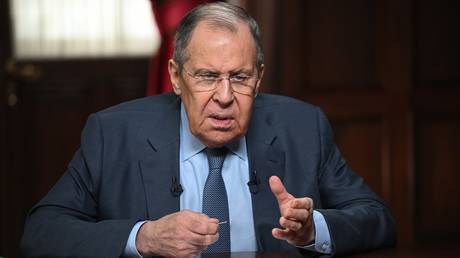Revealed: Saudi Arabia Tripled its Theft of Yemen’s Oil amid Price War with Russia
by Ahmed Abdulkareem, MintPress News:

MARIB, YEMEN — Saudi Arabia possesses around 18 percent of the world’s petroleum reserves. That fact though has done little to stifle the Kingdom’s apparent appetite for new sources of crude. Now, following over five years of all-out war against its southern neighbor, Saudi Arabia is scrambling to secure rights over Yemen’s potentially bountiful reserves of oil.
Aramco, Saudi Arabia’s state-owned oil company, is seeking decades-long strategic agreements with the internationally recognized government in exile of Abdul Mansour al-Hadi, which is backed by the Saudi-led coalition and the United States, to gain control of Yemen substantial oil and gas reserves, particularly in the oil-rich provinces of al-Jawf, Marib, Shabwa, and Hadramout, according to officials. The move could inflame enough anger among Yemen’s many warring and fractious parties to band together against what is increasingly viewed as an existential threat to Yemen’s sovereignty.
Officials in Yemen’s state-owned oil and gas company, known globally as Safer, as well as members of the transitional Hadi government who spoke on condition of anonymity for fear of reprisal, revealed to MintPress that negotiations are already taking place between Saudi Arabia and its allies with officials in Yemen’s ministry of oil and Safer to reach an agreement that would ostensibly hand control of much of Yemen’s oil and gas reserves to Saudi Arabia for decades to come.
A number of meetings have already taken place between high-ranking Saudi officials, including Saudi ambassador to Yemen Mohammed Al-Jaber and officials from Aramco, and Yemeni leaders, including interim vice president of the transitional government Ali Hussen al-Ahmer, governor of Marib Sheikh Sultan al-Arada and officials from both Safer and Yemen’s Ministry of Oil. Negotiators from French oil company TOTAL reportedly attended some of the meetings held in Marib, al-Mahrah, and the Saudi capital of Riyadh.
According to a source in Yemen’s transitional government, Saudi Arabia is seeking long-term lease agreements over the much of country’s oil reserves, particularly in what some officials have called “the oil triangle,” an area between al-Jawf and Marib provinces. Under the agreement, Saudi Arabia would be allowed to develop Yemen’s oil reserves and retain the profits from the sale of said oil in exchange for an annual remittance that would be paid by Aramco to certain members of the Yemeni government. The agreement stipulates that the payments are only required if the government remains friendly to Saudi Arabia.
Jalal al-Salahi, a Yemeni activist known to have close ties to decision-makers in the transitional government, recently released a video in which he claimed to be in possession of a draft document of an oil agreement between Saudi Arabia and Yemen. In the video, which has already garnered nearly 90,000 views since it was published to YouTube on July 4, Al-Salah said the document shows that the Saudi government is to pay $15 billion to certain Yemeni officials in return for seventy years of oil concessions in al-Jawf. Sources in Yemen’s transitional government refused to deny or confirm the authenticity of the document but told MintPress that some of the claims being made on social media are true without specifying which ones.
According to official sources, under the Saudi deal, payments would go to a fund restricted to what the Kingdom calls “Yemen’s debts and reconstruction.” Saudi Arabia, one of the world’s most repressive monarchies and wealthiest countries, launched a U.S.-backed scorched-earth campaign against its southern neighbor under the auspices of restoring the government of ousted President Hadi to power and is now pushing, along with the UAE, for Yemenis to compensate the Saudi-led coalition for the war it has waged on their country.
Negotiations to wrest long-term de facto control over Yemen ostensibly began in 2019 and have been marked by Saudi pressure and threats according to a source close to the negotiations. In fact, Riyadh has kept high-level officials in the Hadi government, including Hadi himself as well as Yemen’s members of parliament, under house arrest in Saudi Arabia. Yemeni officials that have been allowed to stay in Yemen are confined to coalition-controlled areas and cannot leave the country without permission from Riyadh and Abu Dubai.
The potential Saudi move is not without precedent. Saudi Arabia has been securing its objectives in Yemen by enabling its allies in the Yemeni government to take power in exchange for profitable long-term agreements for years. Yemen’s history is rife with these sorts of long-term agreements, including the Treaty of Taif signed in 1934 between the emerging Saudi state and the Mutawakkilite Kingdom of Yemen, which handed Saudi Arabia control over the former Yemeni provinces of Jizan, Najran, and Asir.
Saudi forces and Yemeni tribal leaders with Saudi nationality, along with allied mercenary forces, have been blocking domestic oil exploration in al-Jawf since the war began and it is an open secret that Riyadh bribed former Yemeni government officials to keep them from drilling and exploration activities in the area. In fact, just last week Saudi armored vehicles crossed the border to bury a well that had been dug for water by Yemen’s 1st Brigade Border Guards, apparently fearing they could be covertly drilling for oil.



